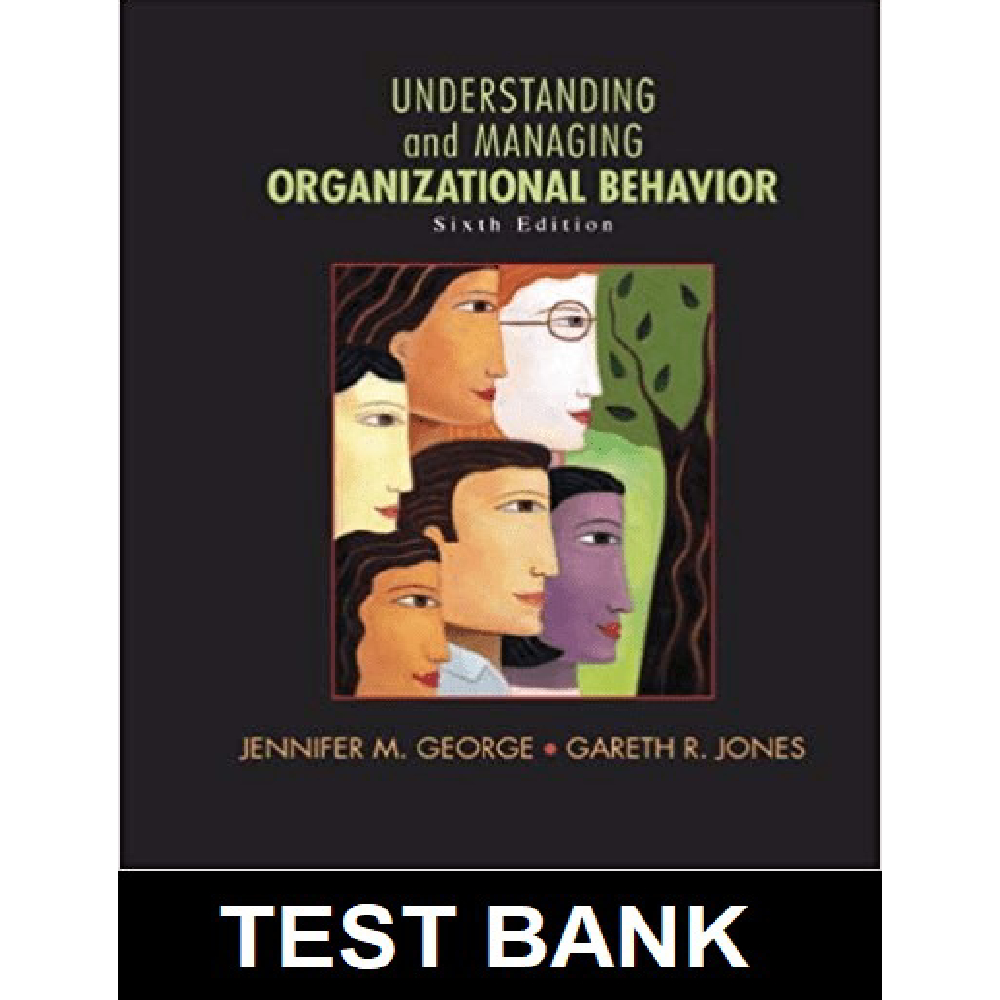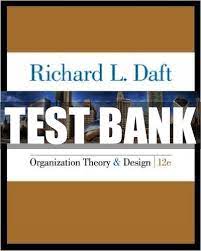Understanding And Managing Organizational Behavior 6th Edition By Jennifer – Test Bank
Chapter 11 Effective Work Groups and Teams
1) Effective work groups contribute to the attainment of organizational goals by providing the organization with important outputs.
Answer: TRUE
Diff: 1 Page Ref: 308
Topic: Process Losses, Process Gains, and Group Effectiveness
Skill: conceptual
Objective: Describe the sources of process losses and gains and understand how they affect group or team potential performance.
2) Managers strive to have groups perform at the highest level possible, which is called a group’s potential performance.
Answer: TRUE
Diff: 1 Page Ref: 308
Topic: Process Losses, Process Gains, and Group Effectiveness
Skill: conceptual
Objective: Describe the sources of process losses and gains and understand how they affect group or team potential performance.
3) Effective work groups minimize process losses and achieve process gains.
Answer: TRUE
Diff: 1 Page Ref: 309
Topic: Process Losses, Process Gains, and Group Effectiveness
Skill: conceptual
Objective: Describe the sources of process losses and gains and understand how they affect group or team potential performance.
4) The potential performance of a group is easy to identity and does not change.
Answer: FALSE
Explanation: Potential performance is often difficult to know in advance and can change as conditions change.
Diff: 2 Page Ref: 308
Topic: Process Losses, Process Gains, and Group Effectiveness
Skill: conceptual
Objective: Describe the sources of process losses and gains and understand how they affect group or team potential performance.
5) Managers and work groups need to strive to ensure that a group’s actual performance comes as close as possible to its potential performance.
Answer: TRUE
Diff: 2 Page Ref: 308
Topic: Process Losses, Process Gains, and Group Effectiveness
Skill: conceptual
Objective: Describe the sources of process losses and gains and understand how they affect group or team potential performance.
6) Process losses are performance difficulties that a group experiences because of coordination and motivation problems.
Answer: TRUE
Diff: 1 Page Ref: 309
Topic: Process Losses, Process Gains, and Group Effectiveness
Skill: conceptual
Objective: Describe the sources of process losses and gains and understand how they affect group or team potential performance.
7) Process gains are increases in potential performance that result from new ways of motivating and coordinating group members.
Answer: TRUE
Diff: 1 Page Ref: 311
Topic: Process Losses, Process Gains, and Group Effectiveness
Skill: conceptual
Objective: Describe the sources of process losses and gains and understand how they affect group or team potential performance.
8) Process gains can be achieved by encouraging group members to be more creative and willing to take risks.
Answer: TRUE
Diff: 2 Page Ref: 311
Topic: Process Losses, Process Gains, and Group Effectiveness
Skill: conceptual
Objective: Describe the sources of process losses and gains and understand how they affect group or team potential performance.
9) The term “social loafing” refers to the tendency for people to exert less effort when working in a group than when working alone.
Answer: TRUE
Diff: 1 Page Ref: 313
Topic: Social Loafing: A Problem in Group Motivation and Performance
Skill: conceptual
Objective: Understand how social loafing can occur in groups and the steps that can be taken to prevent it.
10) Motivation, effort, and performance tend to be highest when outcomes such as pay and praise are administered to employees based on a system of seniority.
Answer: FALSE
Explanation: Motivation, effort, and performance tend to be highest when outcomes such as pay and praise are administered to employees based on their level of individual performance.
Diff: 2 Page Ref: 313
Topic: Social Loafing: A Problem in Group Motivation and Performance
Skill: conceptual
Objective: Understand how social loafing can occur in groups and the steps that can be taken to prevent it.













Reviews
There are no reviews yet.